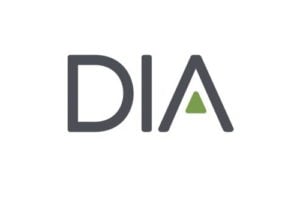Writing in the March edition of DIA’s Global Forum magazine, EMD Serono’s Ana Padua outlines the findings of a recent study into accelerated regulatory pathways in Latin America which aim to reduce approval timelines for innovative medicines.
The Latin America region offers a number of registration pathways to accelerate the regulatory assessment of innovative medicines. As the authors of the recent publication Registration pathways to accelerate regulatory assessment of innovative medicines in Latin America in the Journal of Public Health Policy (JPHP), we conducted and published an extensive review of regulatory information collected from 2017 to 2019 for nineteen Latin America (Latam) countries by characterizing the regional regulatory scenario related to accelerated registration pathways and identifying similar opportunities for countries in Latin America. Those findings published in JPHP are summarized here.
What Are Accelerated Regulatory Pathways?
Accelerated regulatory pathways are mechanisms adopted by regulators to reduce overall regulatory review timelines. These faster mechanisms must never compromise the quality, efficacy or safety of the medicines under review. The regulatory challenges introduced by COVID-19 have made the critical role of regulators and the need to introduce faster (but safe) pathways in response to health emergencies clearer than ever.There is extensive information available in the public domain on accelerated pathways in Europe, in the US and in other major countries, but not in Latin America. The JPHP publication intends to cover this gap, with the aim of helping regulators, industry professionals, patient associations and the public gain access to information of high public health relevance. The article also aims to provide, summarize and update information (in English) on the mechanisms used in Latin America, to reach out to those outside the region with limited or no skills in the local languages (Spanish and Portuguese) or other regional expertise. The consolidated data it provides may contribute to the appropriate use and improvement of these accelerated regulatory pathways in the region.
Key Findings: Accelerated Regulatory Pathways in Latin America
The chart below presents a summary of the findings that indicate the existence (or absence) of accelerated regulatory pathways in nineteen countries in Latin America (Argentina, Brazil, Bolivia, Chile, Colombia, Costa Rica, Cuba, Dominican Republic, Ecuador, El Salvador, Guatemala, Honduras, Mexico, Nicaragua, Panama, Paraguay, Peru, Uruguay and Venezuela). Information was collected from March 2017 to November 2019.In this context, the definition of “reliance pathway” is in line with the concept from the World Health Organization (WHO), also used by the Pan American Health Organization (PAHO). It states that reliance occurs when “The National Regulatory Agency (NRA) in one jurisdiction may give significant weight to–or rely upon–evaluation by another NRA or trusted institution as the basis for reaching its own decision. The relying authority remains responsible and accountable for decisions taken, even when it relies on the decisions and information of others.”
The definition of expedited review was adapted from a White Paper published in 2017 by the European Federation of Pharmaceutical Industries and Associations (EFPIA): “Regulatory authorities shorten duration of product reviews to enable faster approval, most commonly applying criteria for assessing potential benefit of the product for the health system.”
To read the full article, visit the DIA Global Forum’s website here.



